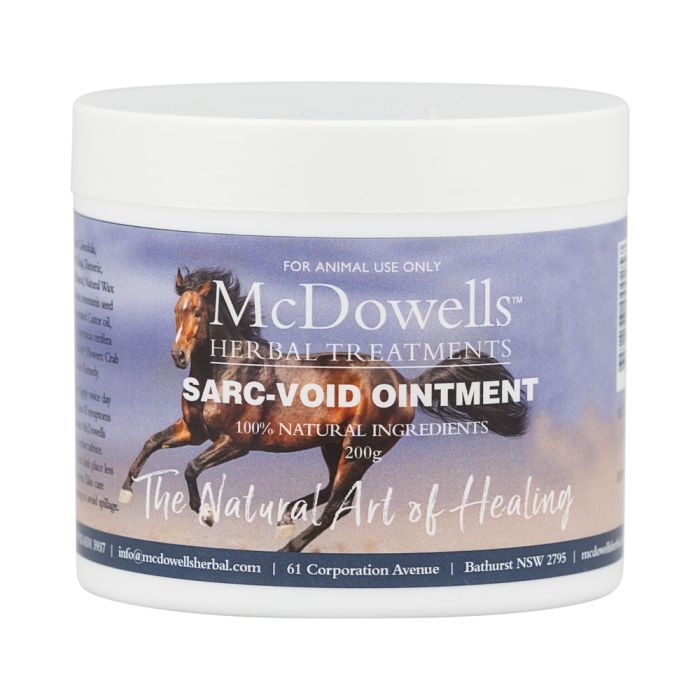Sarcoids are one of the most common skin conditions affecting horses, and while they can appear externally as growths, they often reflect a deeper imbalance in the body, particularly within the immune and lymphatic systems

Sarc-Void Ointment
Product Information
Description
A sarcoid is a growth on the skin caused by the Bovine Papilloma virus.
It grows most often on the inner thighs but may occur on any other part of the body.
Sarcoids are the most common skin tumour in horses and ponies.
The Sarc Void ointment contains herbs traditionally used as anti viral and anti microbials as well as soothing and nourishing the skin.
This product will not affect healthy tissue.
Volume
How do I use it?
Apply twice a day to affected area. Use in conjunction with our Sarc-Void internal treatment for best results.
Warning:
Do not use on areas where friction can occur.
May cause skin irritation. Test area first and use sparingly.
If irritation develops but it is important to maintain application, use every second day.
Apply Zinc cream to pink skin after application to help with sun burn prevention.
How is it taken?
What's in it?
Related Posts
Disclaimer
FOR ANIMAL USE ONLY
Reviews
large sarcoid completely gone after 6 weeks
excellent product
I will advise anyone using the ointment to be sure to keep the ointment on the sarcoid and not let it leak and linger on adjacent tissue. It is powerful stuff and our horse lost his hair when the ointment leaked down his shoulder. Cath suggested I use a zinc sunscreen barrier under the treated sarcoid to avoid drip and travel and to protect the now bare skin from the sun. This worked perfectly but had I known about the effect on the surrounding tissue I would have taken extra precaution to keep the ointment only on the sarcoid. It did demonstrate to me how powerful the product is.
I would highly recommend the sarcoid ointment and internal drops. It would be my absolute first choice “go to” in future if ever I came across a sarcoid on a horse again. Even though our horse is now sarcoid free, I will continue to use the internal drops to complete the treatment cycle as it targets the virus internally.
